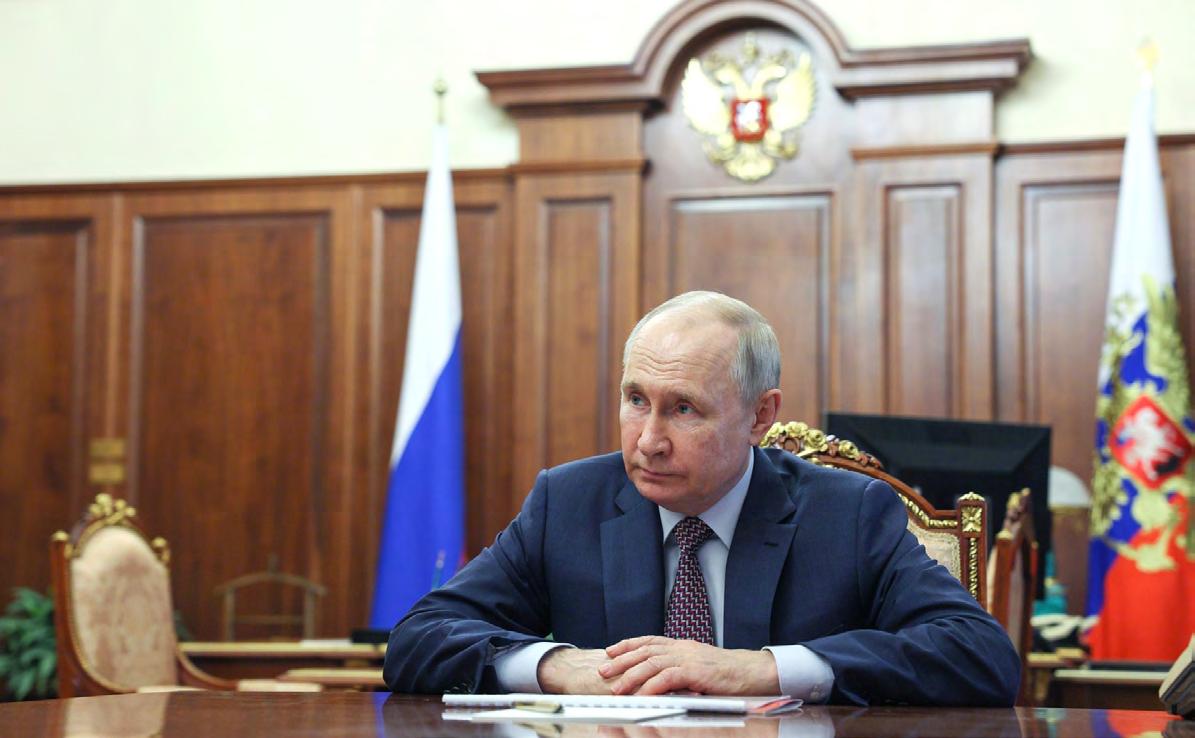
1 minute read
POLL REVEALS APPROVAL RATINGS OF PRIGOZHIN, SHOIGU, PUTIN
Russian public support for exiled Wagner Group head Yevgeny Prigozhin has somewhat collapsed amid his short-lived rebellion on June 23–24. The share of people viewing the man, who seemed short-listed for the upcoming presidential election in Russia, negatively nearly doubled after the mutiny. The approval rating of Russia’s Defense Minister Sergei Shoigu, Prigozhin’s arch rival, also dropped. According to Levada Center, the mutiny has not as much dented Vladimir Putin’s popularity. Importantly, his position has weakened in the eyes of top Russian officials. He might be seen as a weak leader, which could encourage conspiracy. Putin has never been threatened by a domestic revolution, also due to the political apathy of Russian society.
The most recent opinion poll on Prigozhin was conducted by the independent polling agency Levada Center on June 22–28, before the mutiny and shortly afterward. Prigozhin had the approval of 58 percent of respondents two days before the uprising, per Levada. Respondents’ support for Prigozhin dropped to 31 percent during the mutiny, and after its unsuccessful conclusion remained at 29 percent, Levada reported. The number of those who said they were willing to vote for Prigozhin in a hypothetical future presidential election halved due to the uprising; from 19 to 10 percent in the course of the week. According to Levada, before the coup, Prigozhin was referred to as a “fighter for truth”, a “genuine leader,” and a “patriot”, after the mutiny respondents called him negatively, saying “he sparked unrest” or “was greedy wanting more power in Russia.” So is Prigozhin’s political career doomed to fail? Not really, as some 30 percent of respondents still view him positively. It is notable for the Wagner chief that the whole story eroded trust in Russian elites. Respondent attitudes to Shoigu—who Prigozhin has accused of trying to destroy Wagner—also fell over the course of the chaos. Approval for Shoigu fell from 60 percent before the insurrection to roughly 50 percent afterward. 81 percent of respondents supported Putin before the rebellion (June 22–23), dropping to 79 at its peak. By June 28 when Prigozhin abandoned his gambit, Putin’s approval had risen to 82 percent. In May, some 67 percent of respondents told Levada they believed Russia was moving in the right direction. At the height of the Wagner mutiny on June 24, this figure fell to 53 percent, the lowest figure since Russia invaded Ukraine. Sentiment recovered somewhat after the situation stabilized, but still, only 61 percent are now positive about the country’s direction. This is below the average of 67 percent in May. However, that is a safe result for the regime while Putin needs to sack some of his prominent officials. Otherwise, a new crisis will erupt in Russia that Prigozhin will be watching from Belarus. ■
Advertisement
29 June 2023










